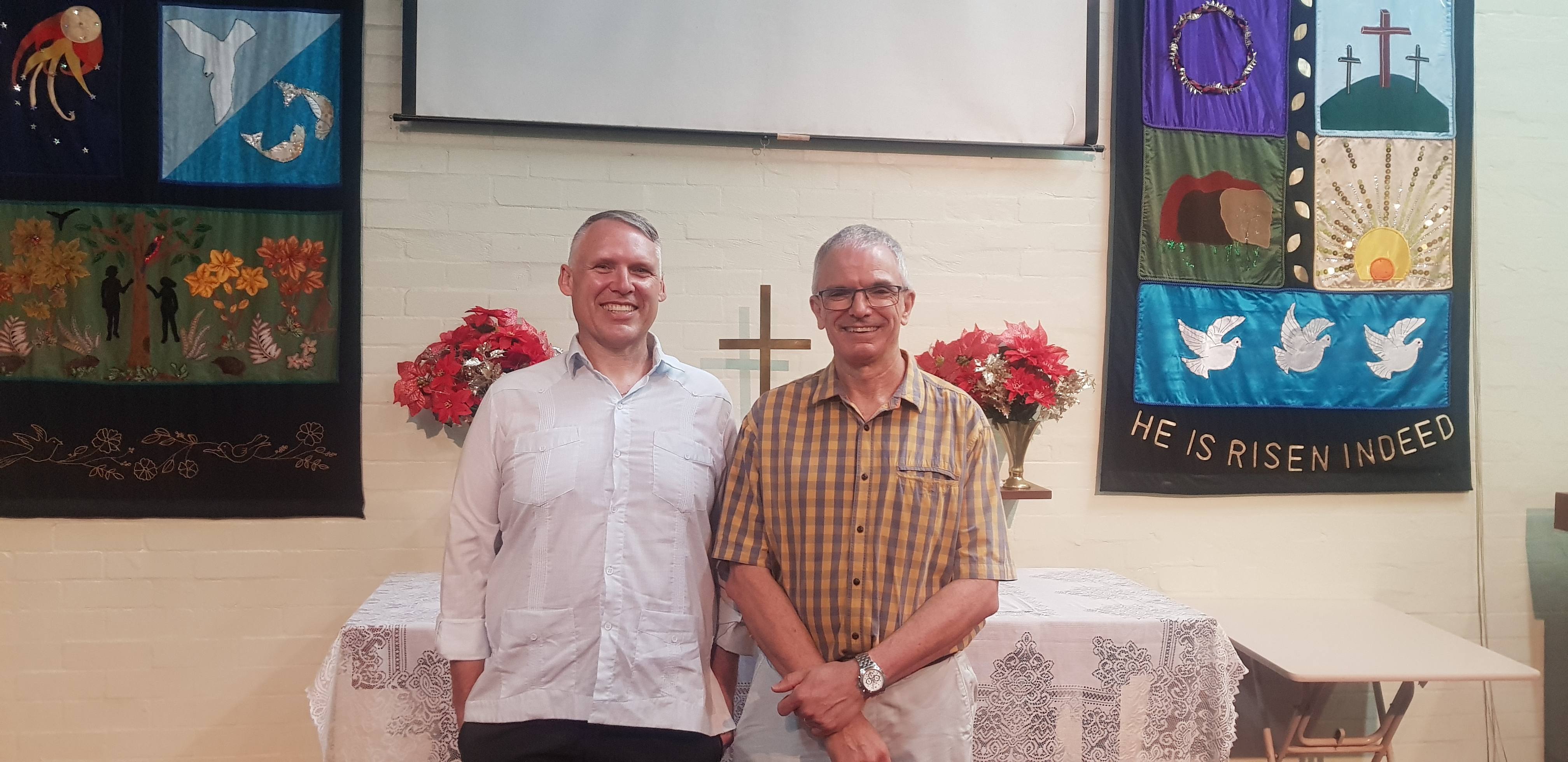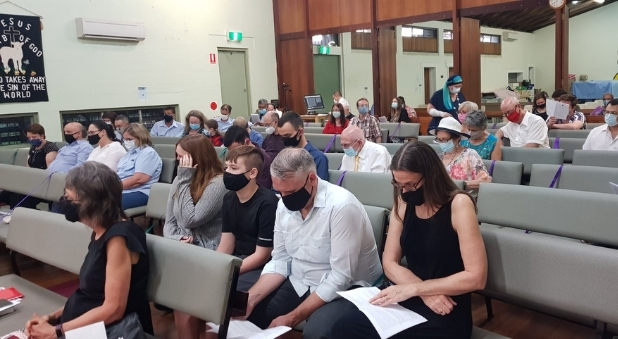It’s a normal weekday morning, so when the Rev Craig Hooper stands out the front of Mount Druitt Anglican he sees dozens of cars driving up and down the street, and lots of kids walking past with parents and carers, on their way to school.
It’s busy, everyday suburban life. But it’s also life in one of the most socially and economically challenged parts of the Diocese.
Mr Hooper has recently come as rector to Mount Druitt, with his wife Sandra. He had been part of the Ministry in Socially Disadvantaged Areas Committee – which was set up in 2017 to seek out ways for ministry to become more sustainable, effective and well-resourced in areas of social challenge. Mount Druitt was one of the 30 parishes the committee was set up to support.
Developing gospel work that sees people follow Jesus
“This disadvantage isn’t just about income,” explains Bishop Peter Hayward, the committee’s chairman. “It includes things like the level of unemployment, the availability of technology, people’s education level and a range of generational factors. We want to encourage ministry in these areas and continue to develop gospel work that sees people follow Jesus. It’s as simple as that.”
Mr Hooper will work part-time at Mount Druitt and part-time as a consultant with the Centre for Ministry Development at Moore College – supporting ministers and ministry in areas of social challenge. He has been joined in the parish by Coz Crosscombe, an Australian with 25 years’ experience in the US working in challenging urban environments, who will also split his time between Mount Druitt and consulting work.
Says Mr Hooper: “Christians in Mount Druitt are very open about their difficulties and challenges. But they see where being a Christian makes a difference and understand the transformation God brings, and that it’s a slow process. Non-believers too, in my experience... you don’t have to convince them that there is brokenness and problems in areas of social and economic difficulty.
“They’re not always open to repenting and believing in Christ, but there’s an openness to speaking about the Lord.”
"There’s an openness to speaking about the Lord.”
It’s going to be a different kind of parish set-up, but one that Bishop Hayward hopes will bear fruit for the gospel and potentially be replicated elsewhere.
“We as a Diocese are committed to maintaining a parish in every community – that’s our commitment,” he says. “The committee is designed to sustain ministry and help develop ministry in tough areas, and this at a time when most other churches and denominations are withdrawing from these same areas.”
Mr Hooper adds that while the need for the gospel is the same everywhere, “The difference here is that the people we’re coming into contact with can have a lot of difficulties just living day to day. Many present as very broken, and their immediate needs can be quite overwhelming... The challenge is not to be overwhelmed by these issues but to see that they come as a person for whom Christ died and that, above all else, they need to be saved and have the gospel transform them.

“My role is to shepherd the flock – to love them in the Lord, help grow them in the Lord. We’re also using Coz’s skills in understanding community to look at ways to build on the connections we already have, looking to understand the community better so we can work out other ways to bring the gospel to the locals.”
Mr Hooper is grateful for the work and ministry at Mount Druitt of previous rectors, wardens past and present, church members and the parish’s “tireless” children’s worker Elizabeth Bognet. He is also keen to explore further partnerships with Anglicare, which has existing links to the parish through its mobile food pantry and an onsite dementia day care centre.
In addition, there is the ongoing financial and prayer support received from the Western and Wollongong regional councils, Evangelism and New Churches, the parishes of Turramurra and King Street and a number of committed individuals – which he describes as “great blessings”.
“It’s like supporting missionaries overseas, where there’s long-term prayer and financial support needed. That’s what’s going to be needed here as well, but I’m okay with that because it provides the opportunity for Christians elsewhere to have the joy of gospel partnership.
“There are so many opportunities here, lots and lots of people – all loved by God, created by him and for him, but who probably haven’t heard the wonderful gospel yet.”























